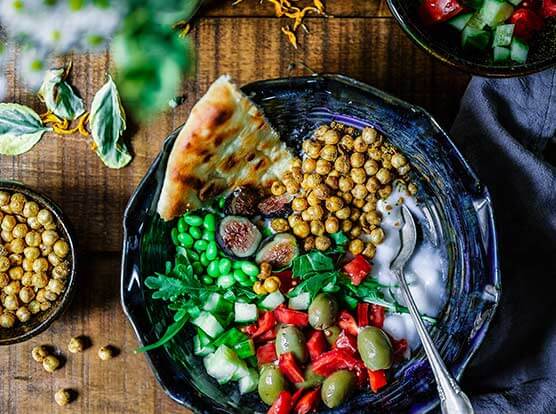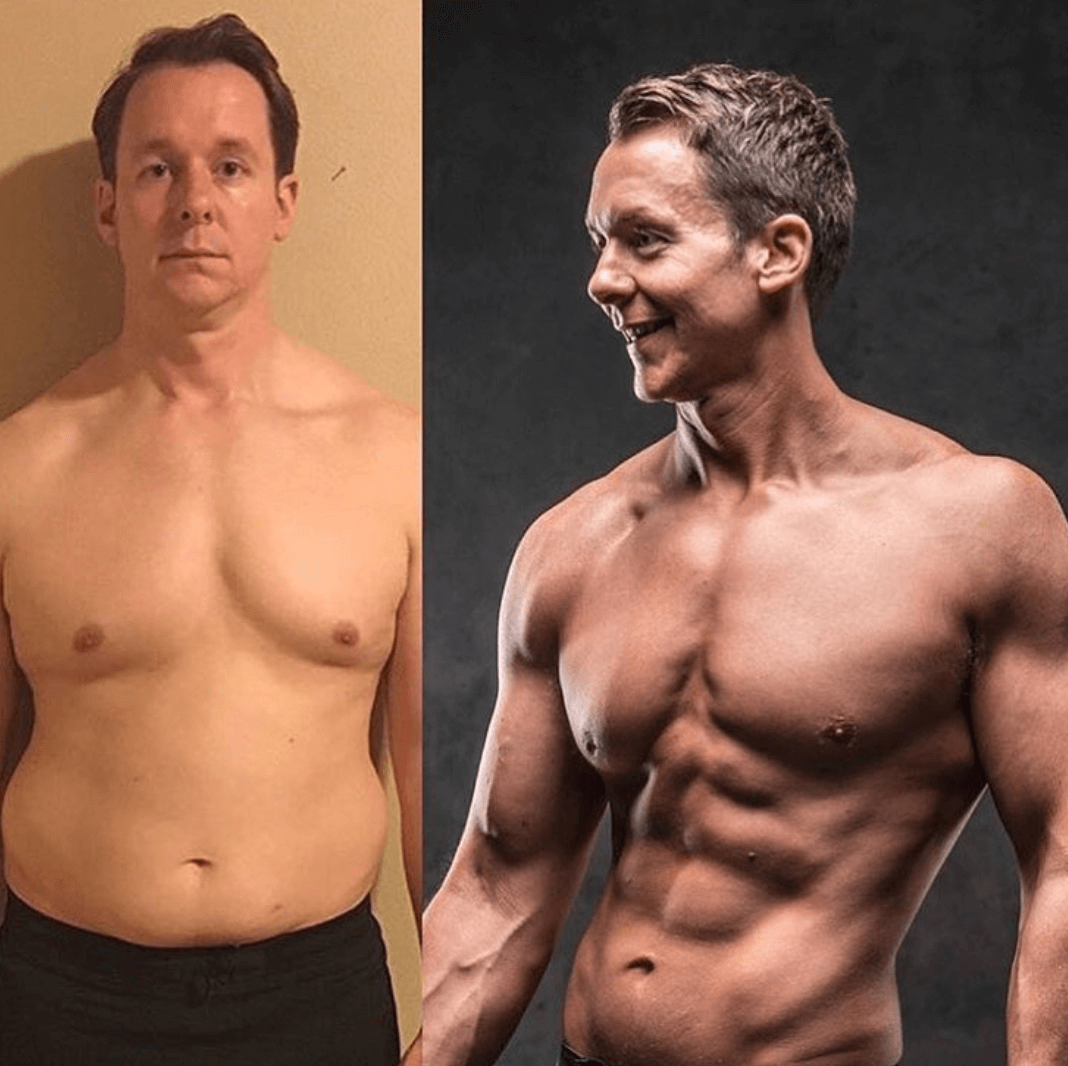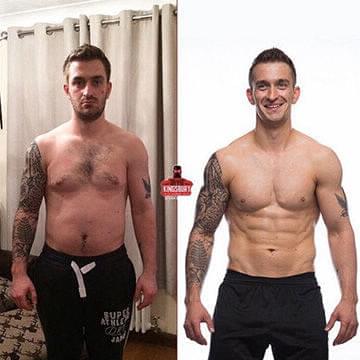If you’re a vegetarian and looking to get a good amount of protein in your diet, you’ve probably heard of a few popular foods for veggies, like chickpeas or eggs. You might have done a bit of googling to find other good sources of protein.
But how much protein is really in these foods?
Before I get started, I want to say that this article is all about protein. It’s really important to eat a range of foods to make sure you’re getting all the nutrition you need, so if you’re looking to get a lot of protein in your diet, don’t just pick the most protein rich food from the list and eat it every day. Mixing it up is a great way to stay healthy.
To help compare sources of protein, I’ve made a few little graph of in foods. Hopefully this doesn’t bring back bad memories from maths class at school, but I think it’s the best way to compare all these foods.
I’m showing you here how many calories of protein (blue), carbohydrates (orange) and fat (grey) are in a selection of foods. The number of calories is per 100 grams.
First off the protein winners. These are foods with more calories from protein than any other source:
These are in order of how much protein there is in these foods. Let’s go through them:
Whey powder: well, no surprise here. This is a supplement designed to be a protein source.
Seitan (wheat gluten): wheat gluten is a flour made from the gluten of wheat. It’s incredibly high in protein and can be used to make seitan, a meat substitute. However, if you’re gluten intolerant, you should absolutely avoid this food, as it’s pure gluten.
Black bean/edamame spaghetti: this food is a superfood and it is amazing it isn’t more widely known. It’s available from all major supermarkets (yes, I’ve checked). It’s gluten free, high fibre, low carb, low fat, and a great substitute for regular pasta or noodles. It’s pretty tasty too.
Quorn (mycoprotein): a popular meat substitute and it does a pretty good job at matching the protein content too.
Skyr: an Icelandic fat free low carb yoghurt. Rich in protein but not very calorie dense, meaning if you’ve got a big appetite you can enjoy a large helping without feeling guilty. Pretty similar to 0% fat greek yoghurt in composition, though with slightly more protein.
Egg whites: an infamous natural protein source. Zero carb, zero fat, though at only 4g of protein per egg you’d have to eat a lot of eggs if you plan to make this your primary source of protein.
Edamame beans: these green soybeans are about as balanced as you can get between protein, carbs and fat.
Tofu: another soy product. This silky white food is lower in carbs than edamame beans, and while it doesn’t have much flavour itself, is great at soaking up spices when cooked.
Next up, protein rich foods that contain more carbohydrates than protein:
As you can see, most grains and pulses have similar macro content. Lentils win the protein race, but not by much. All of them contain much more carbohydrate than protein (lentils have about 25g of protein and 60g of carbs per 100g), so while they’re a great source of natural protein, if you’re looking for a high protein diet you probably won’t want to focus too heavily on these foods.
Broccoli, asparagus and other green vegetables all contain a bit of protein and a very low in calories.
Finally, the protein foods which are higher in fat than protein:
Nuts and seeds (like cashews and chia) are often touted as high protein foods. It’s true that 100g of peanuts contains an impressive 26g or 100 calories of protein, making them the fifth most protein dense food I’m discussing here. But the problem is that protein comes with over 400 calories of fat. If I’d put these nuts and seeds on the first two graphs they would have been off the scale.
Tempeh, a high protein loaf made from soybeans, is nutty tasting but contains much less fat than nuts.
Eggs contain a good amount of protein too, but the yolk of the eggs are fairly high in fat.
Greek yoghurt contains about as much protein as the fat free variety, but contains about 4 calories of fat for every calorie of protein. If you want to use yoghurt as a protein source, you might want to consider Skyr or fat free yoghurt.
So what should you eat?
Hopefully I’ve given you some ideas here about good foods to eat as a vegetarian to hit your protein targets.
If you want to avoid protein supplements, black bean spaghetti, edamame spaghetti, Quorn or Seitan is a great place to start, with soy products like tempeh or tofu being excellent additional options.
Grains and pulse are a great source of protein but be aware that they are also very high in carbohydrates too, so if you’re looking to limit your carb intake, you might want to avoid eating too much of these foods.
If you like snacking and you’re looking for something to nibble on which is high protein, avoid eating too many nuts and seeds. They may contain a good amount of protein, but they’re incredibly fatty. Try snacking on Skyr or other low fat yoghurts if you want to boost your protein without increasing you fat or carb intake. You can always add a few blueberries or other low cal fruit to make it more interesting.










